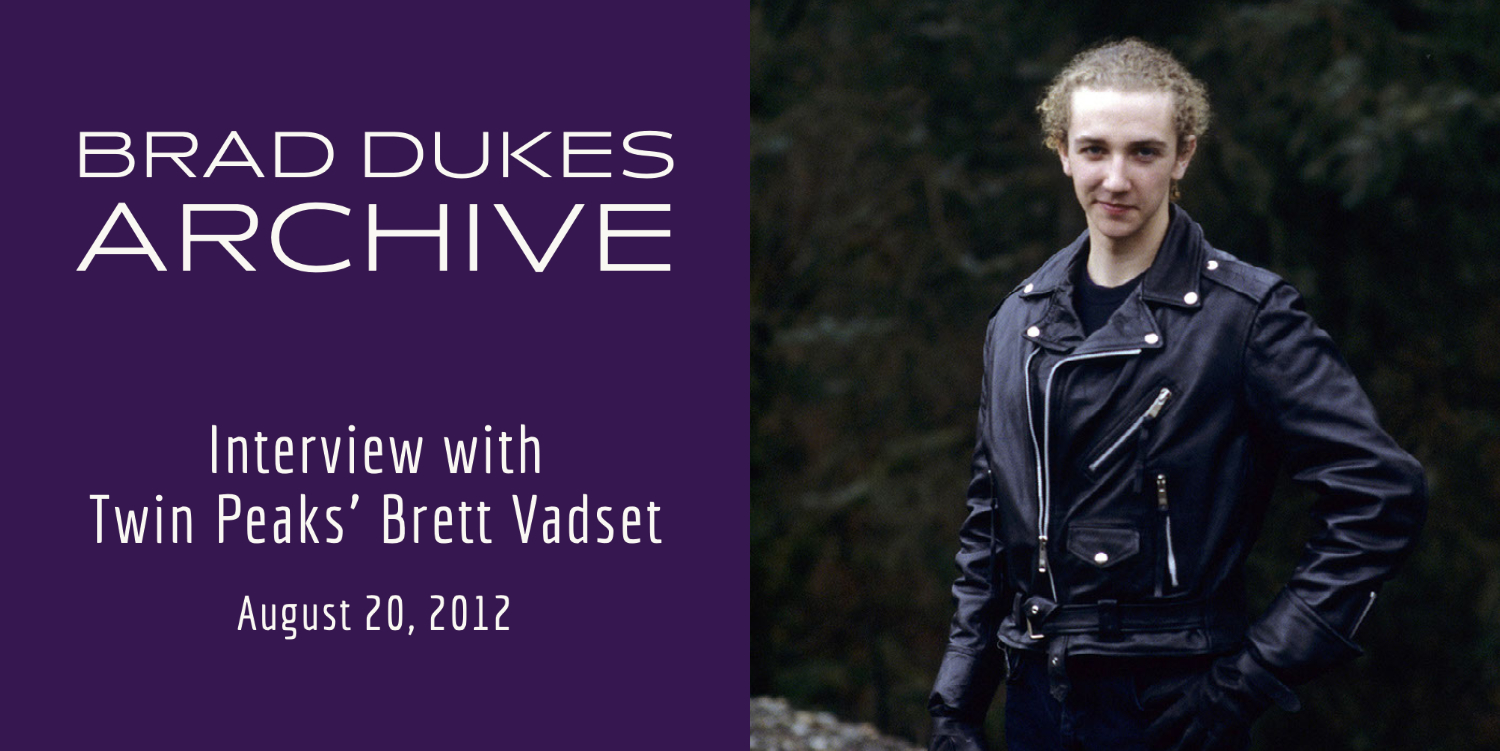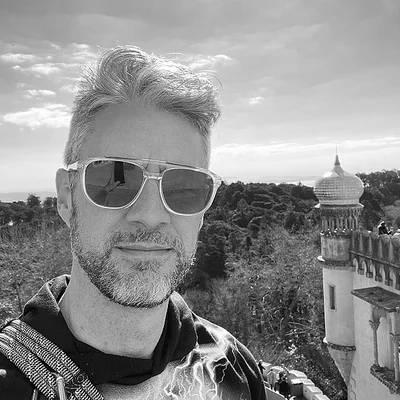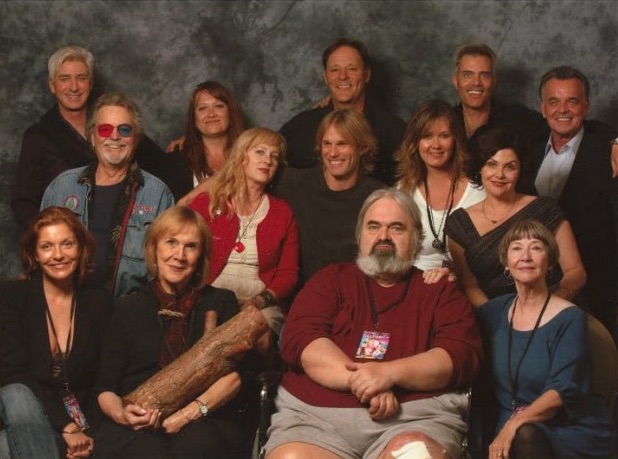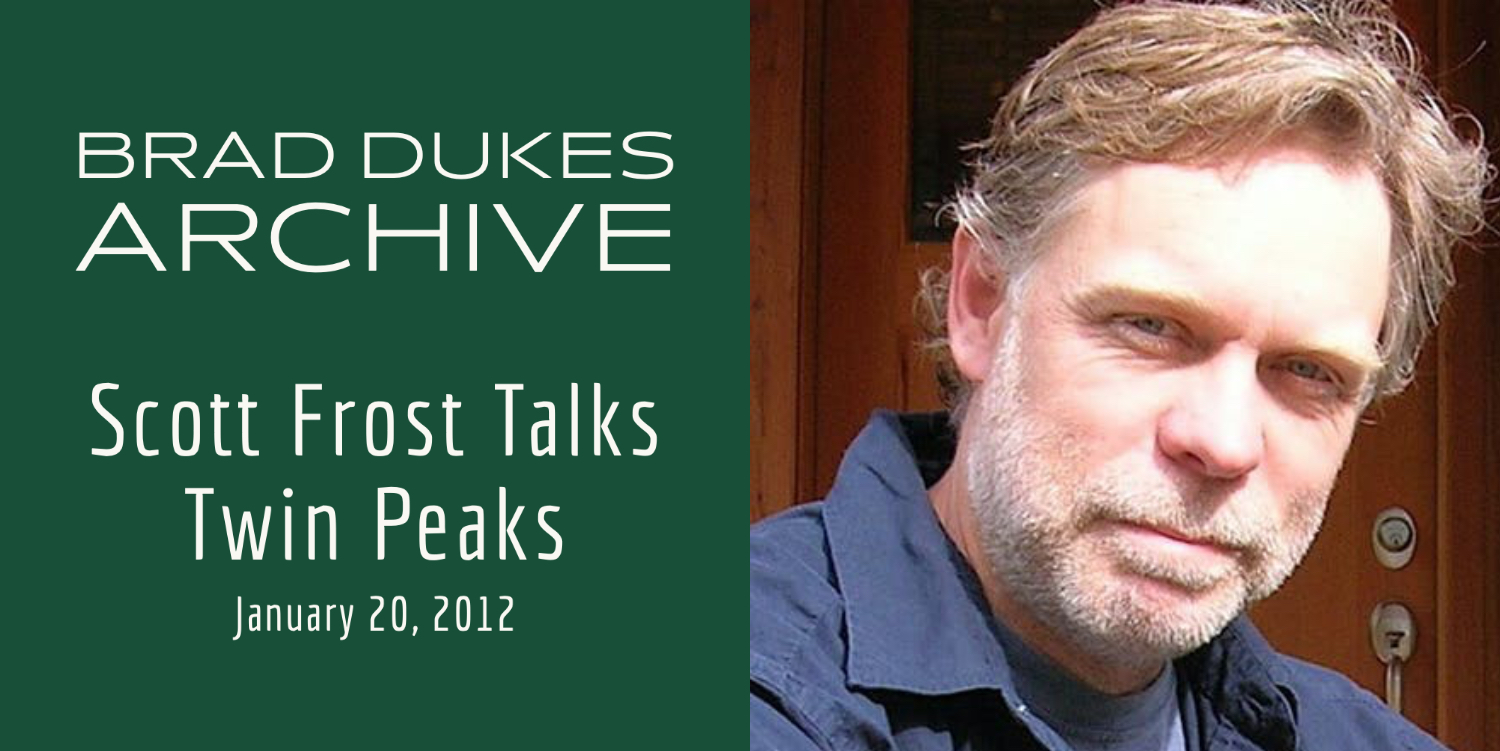In 2011, Twin Peaks fandom felt like a secret society. A new generation was only beginning to discover the show on Netflix. Besides the 2007 Gold Box DVD release, there simply wasn’t much going on aside from a couple of blogs and forums dedicated to the show. Twin Peaks felt dead as a doornail outside of this impassioned bubble. I began interviewing anyone from Twin Peaks that would talk to me. I wanted to immerse myself in that world, and see what was left to be gleaned. What might be a few layers under the surface. This mission endured for over a year at full speed, until eventually, I ditched my blog and put all my efforts into what would become “Reflections: An Oral History of Twin Peaks.”
For the first time in a long time, select interviews from this era are being re-published (and in some cases re-mastered) over the next few weeks on Twin Peaks Blog. Today’s interview with Brett Vadset, who played biker and Bookhouse Boy Joey Paulson, was originally published on August 12, 2012.
INTRODUCTIONS AND AUDITIONS
Brett and I chatted via telephone all about his time on Twin Peaks. After chatting about the untimely passing of MCA Adam Yauch and the awesomeness of The Shins, we got down to business.
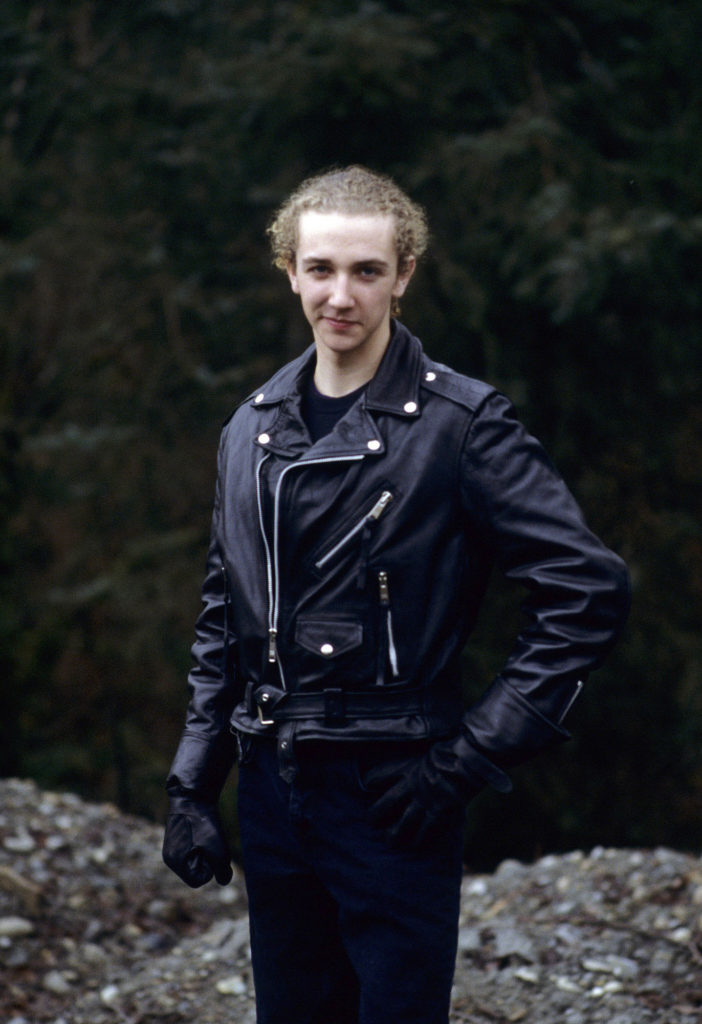
BD: To kick things off, where are you from and what was it like growing up?
BV: I’m originally from the Seattle area, Washington State. I was born and raised ironically most of my childhood up in the area where Twin Peaks was shooting. I wasn’t aware of that, but I went to Performing Arts High School, my dad worked at Boeing, and my mom was in real estate and we lived primarily in the Snoqualmie Falls area.
We would commute from down there, I went to school in Seattle and had been in theatre since age 8. I went to Cal Arts and studied for a few years and moved back [to Washington], and got involved at the Annex Theatre doing shows with a bunch of ex-college dropouts. We were kind of like The Little Rascals got really popular as an alternative theatre. Most big productions were in Vancouver, BC, so getting work visas was difficult, so when we heard David Lynch was doing a show in the area there was a big buzz in the community.
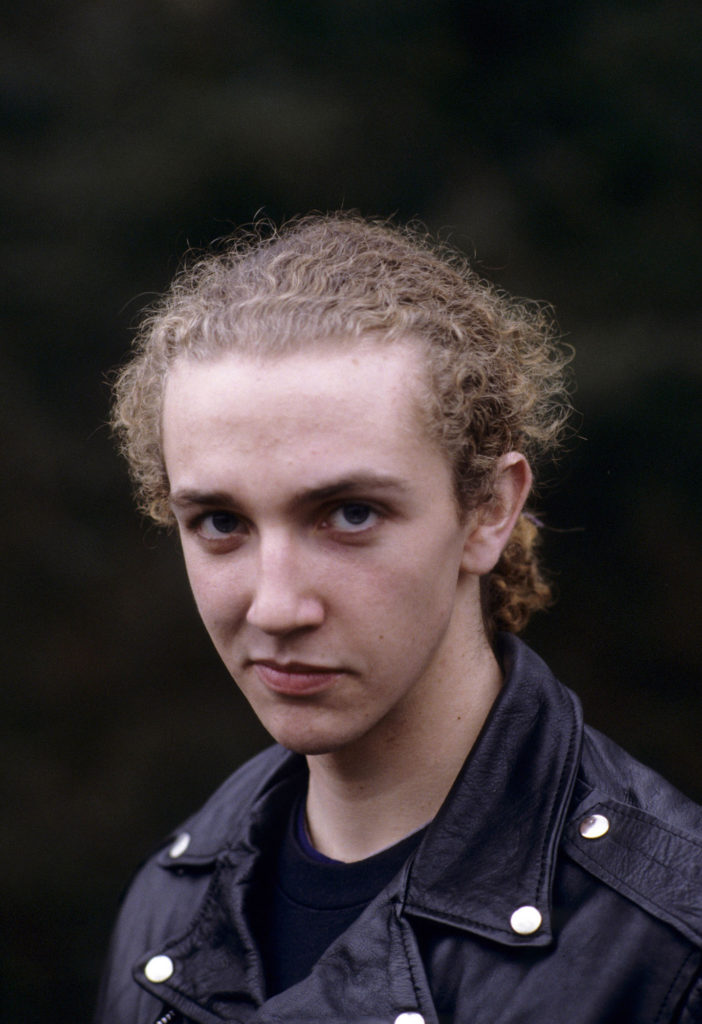
In my teens and twenties I was a great admirer of his work, so when I was with the theatre company I found out who the casting director was there were only a few in Seattle at the time and I took my photo and resume and just walked in and handed her my head shot and it’s kind of unheard of these days, but back then I didn’t have anything to lose one way or another, so I walked in and she immediately was like, ‘Wow you’re an actor’ and I said ‘Yeah, that’s why I’m here.’ She said, ‘I’ll definitely call you in’ and I figured she was just saying that to get rid of me! (laughs)
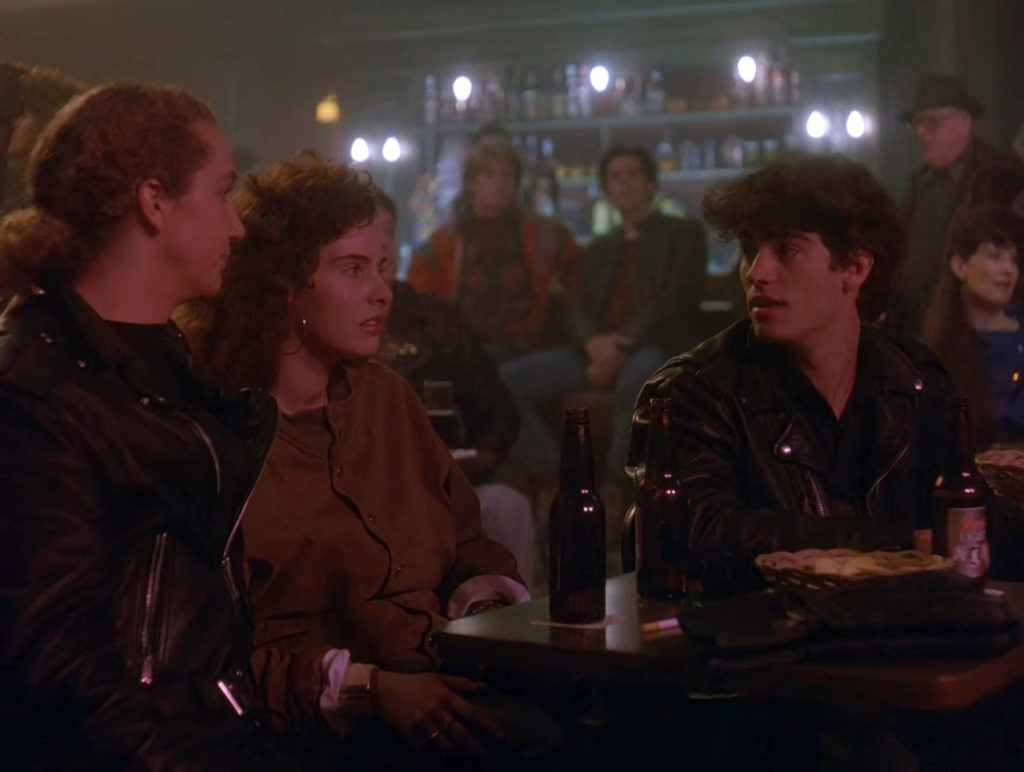
BD: What was your audition like?
BV: A week later I got a call in and did the first round of auditions on tape and a week or two later I met with the casting director and the third meeting was when David and Mark Frost were in Seattle, probably looking at locations. It was pretty surreal! I was only 21 or 22 at that point. I had done many student films in college during undergrad and a lot of theater so I had a pretty good idea of what it would be like on the set. I just thought it was great honor to meet him, and I was unfamiliar with Mark’s work, but it went pretty well.
I didn’t do any reading at that point of the script, we just talked and it was really interesting. Johanna Ray was in the back of the room and David and Mark were right there side-to-side five feet in front of me. I was just talking about myself and I told them I was born and raised near Snoqualmie Falls and they just looked at each other, and they said, ‘Whereabouts?’ I think they were kind of skeptical and David looked at me cock-eyed. So I said I was from near Tokul Creek Road and there was a little set of falls over there and asked if they had been looking around that area. They looked at me and laughed and said they were shooting in Snoqualmie so I said, ‘Oh, yeah!’ I started naming all these locations, I basically grew up with dirt bikes and fishing around there.
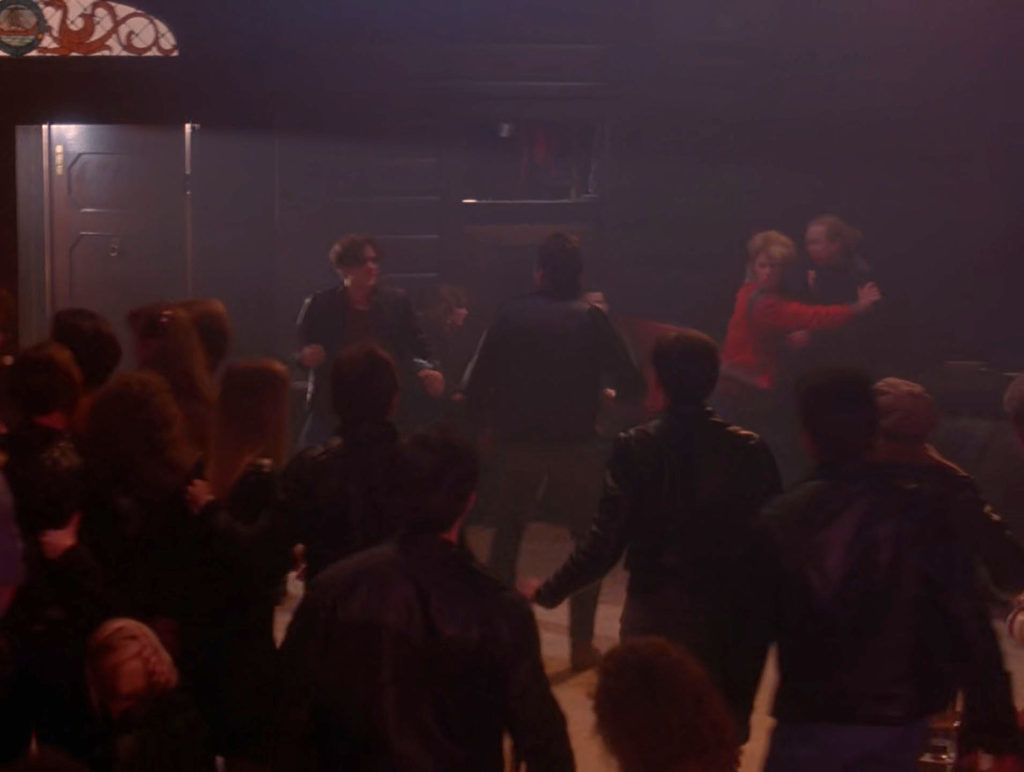
I knew David liked fishing, but I didn’t know how avid (he was). He was still a little skeptical and he said, ‘So yeah, what kind of bait do you use?’ and I said that I just wade into the mud and use periwinkles, which are bugs that have their own shells and I use that as bait.
So he says, ‘OK so how do you get the shell out??’ I said, ‘You’ve gotta rip it out.’ He just kept asking me all these details about how I got the shell out! (laughs) It was interesting and fascinating.
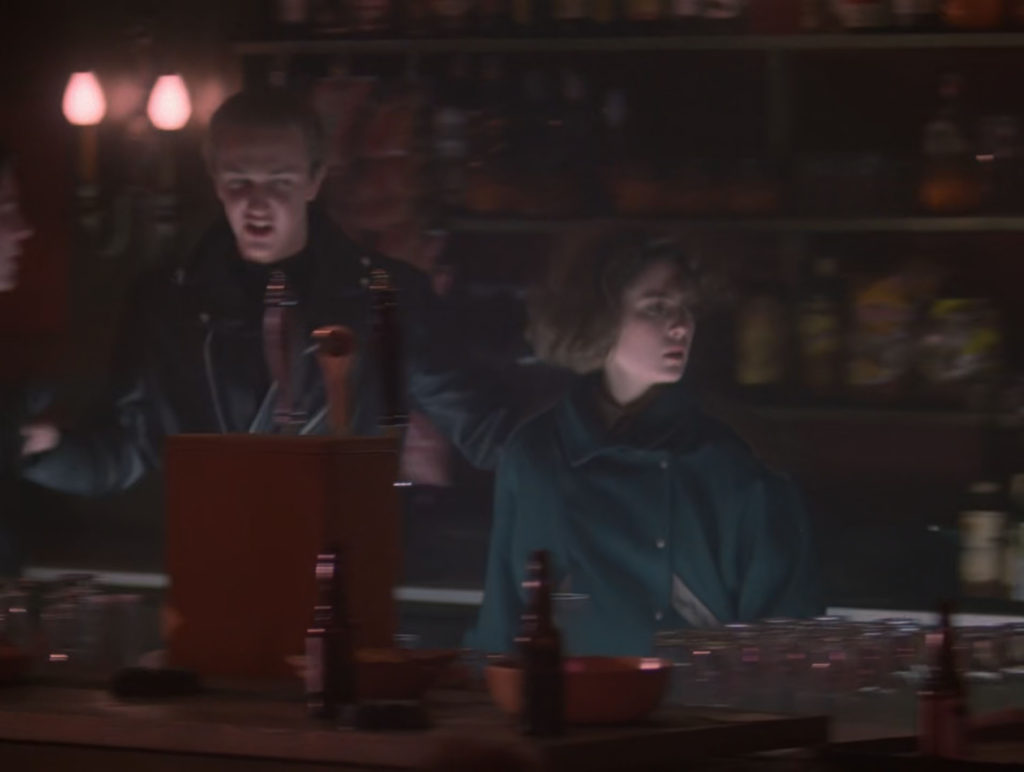
That was pretty much the interview, they looked at me and nodded and said, “OK, alright, great … nice to meet you!’ and I just thought wow, that was an interesting interview! (laughs) I thought it was cool they were shooting up there and I thought to myself – Maybe somehow I can get on the crew. I want to see a master filmmaker and how he works.
A couple of days later I got the call and I got cast and just thought ‘Wow!’ That was my first real paid gig as a Screen Actors Guild (SAG) actor I got my SAG card because of it. [The experience] was exciting!
BD: I’m curious, did your friend make it into the production at all?
BV: She did not, she had an interview but they went in a different direction. It would have been great to have her on. She was like a sister to me.
BD: Being from the Seattle area, did you know anyone else in the production?
BV: No, I didn’t. I guess I beat someone out in California that they were looking at, but no, I didn’t know a lot of the actors coming in. I was one of the few local people from the cast. I got to know the cast pretty well and be on set during the downtime. They really ran a tight ship with the Assistant Director and stuff.
WORKING ON THE PILOT
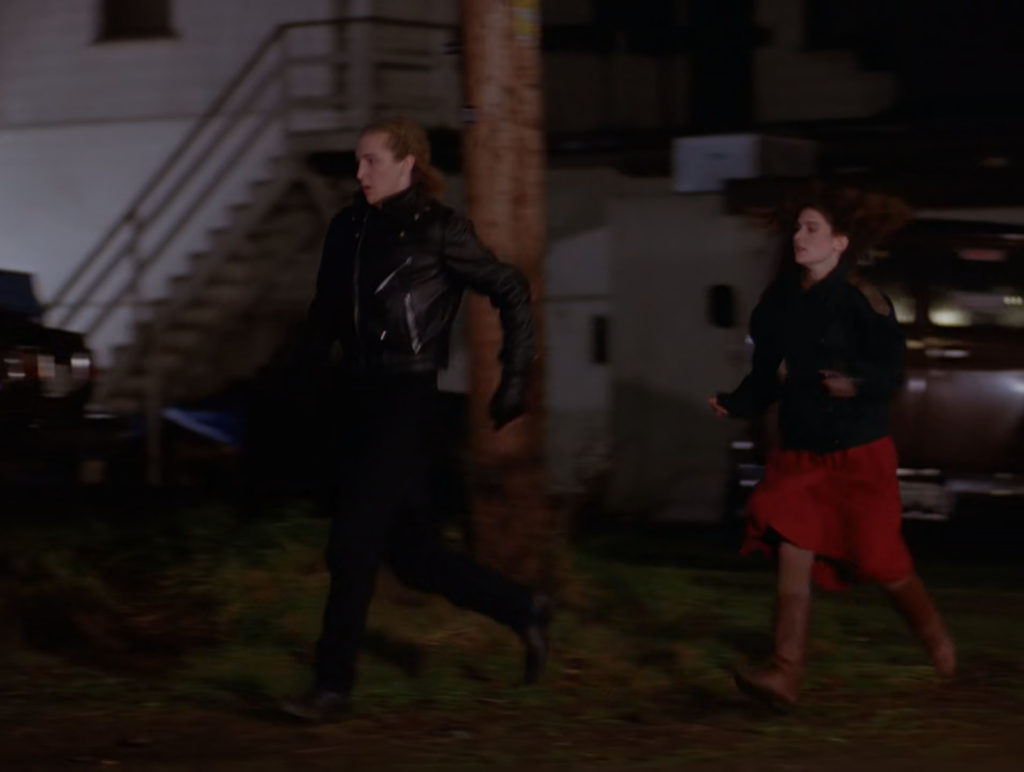
BD: What do you remember about filming the pilot episode?
BV: It was a pretty smooth sailing production. The one thing I remember is when we came out of The Bookhouse, it was raining that night and I’m taking Lara Flynn Boyle on the motorcycle. I was getting on my bike and I obviously had experience with bikes. I told Mark and David that I grew up on dirt bikes that night I proved it because Harley [Davidson]’s are much bigger bikes.
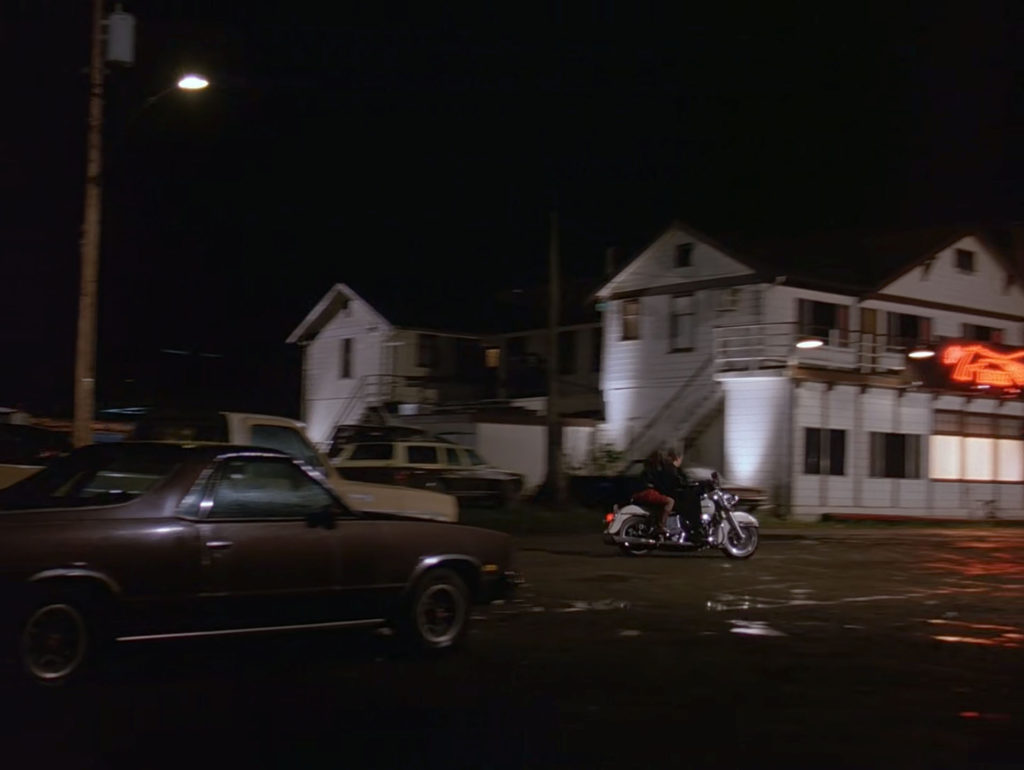
The ground was wet and the mud was about 1 or 2 inches deep. There was a point where I had to really maneuver the bike, especially with someone on the back of the bike. We almost spilled but I caught it and it went off really smoothly and David appreciated it and said, ‘Wow, you really know how to ride!’ And I said, ‘Yeah, I’m not making this stuff up!’ Many actors will tell a director they can do whatever to get a role, so it was a good experience to show that I could really ride a bike.
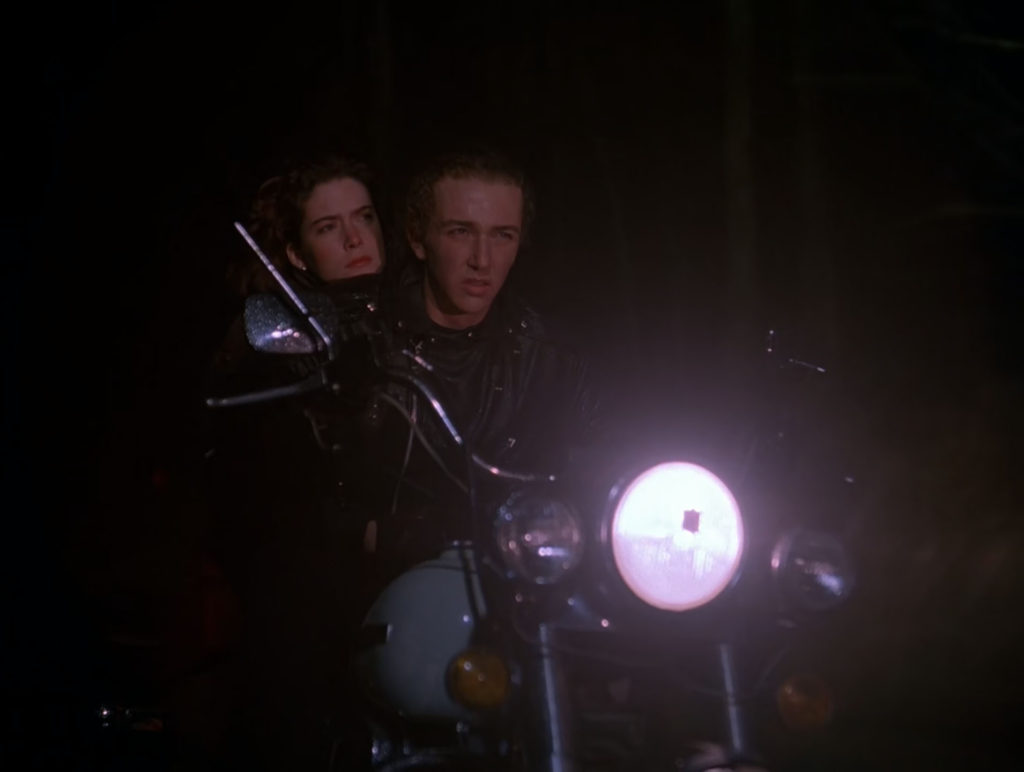
There was a time in that same scene where there was a coordination issue with the stunt driver. There was almost a big accident where we were going to collide, but it didn’t happen and luckily the timing was just off – but it was an exciting time and it gets your adrenaline going. I remember David yelling and walking 20 or 30 feet from behind the camera towards the stunt driver. He’s usually a very calm and collected person and he was really upset at the stunt driver. Needless to say, I think that driver was relieved of duties after that. It was a great experience and every one felt a sense of dedication to the project and it shows in the final product.
BEYOND THE PILOT
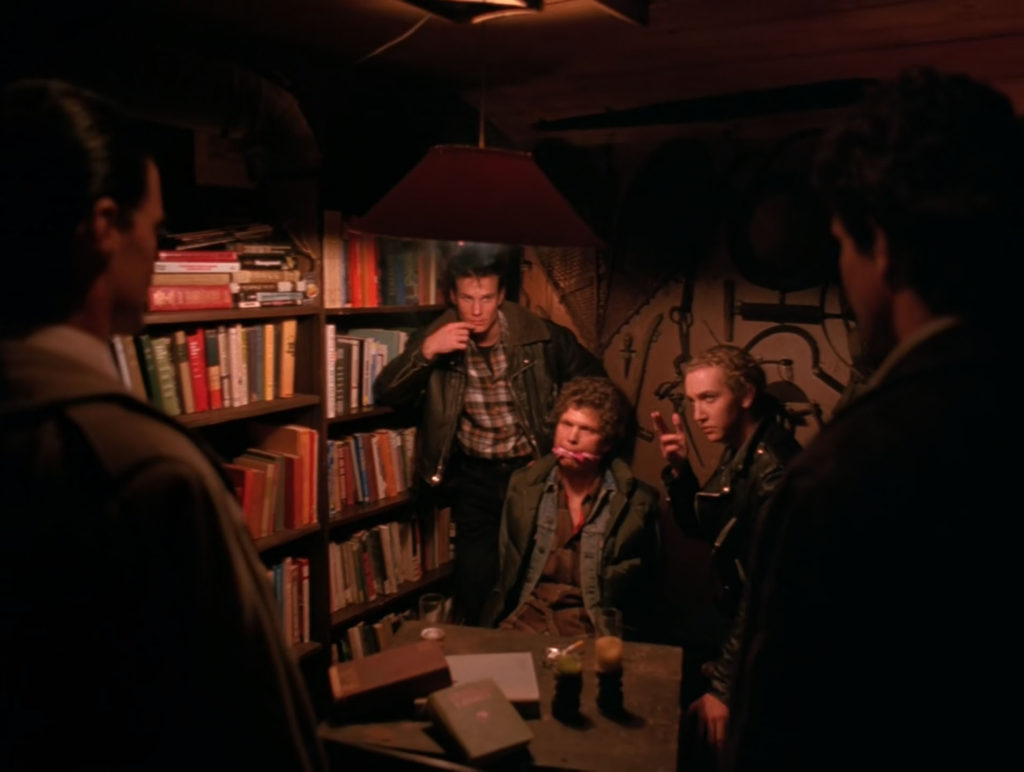
BD: Who did you enjoy spending time with on the set?
BV: Because of our connections with the characters, James Marshall and I hung out a lot afterwards. We haven’t been in touch in awhile, but he was a good guy and we bonded a lot. I thought the characters were going to be expanded but it didn’t end up that way unfortunately. I came down to Los Angeles and the characters weren’t fleshed out as much as we had hoped or thought. This is just pure speculation but production was mostly done on interior sets and as far as the exteriors there was kind of a limitation with that, budget-wise. This is all just speculation. Having done the other side of production, I understand plot strengths and storylines limit that.
BD: Whenever I watch the pilot episode, I think to myself, ‘Why wasn’t Joey Paulson given a bigger role?’ There was definitely room for him in the show.
BV: Yeah, it was kind of a bummer. They shot in Van Nuys in a big sound studio and they re-created everything and it was great but the exteriors were done with stock footage and they would shoot the rest around southern California, but it wasn’t the same, it’s quite a difference (laughs) in the geography with the exteriors. But James and I always thought they would build further and expand more into our characters, but unfortunately that never happened.
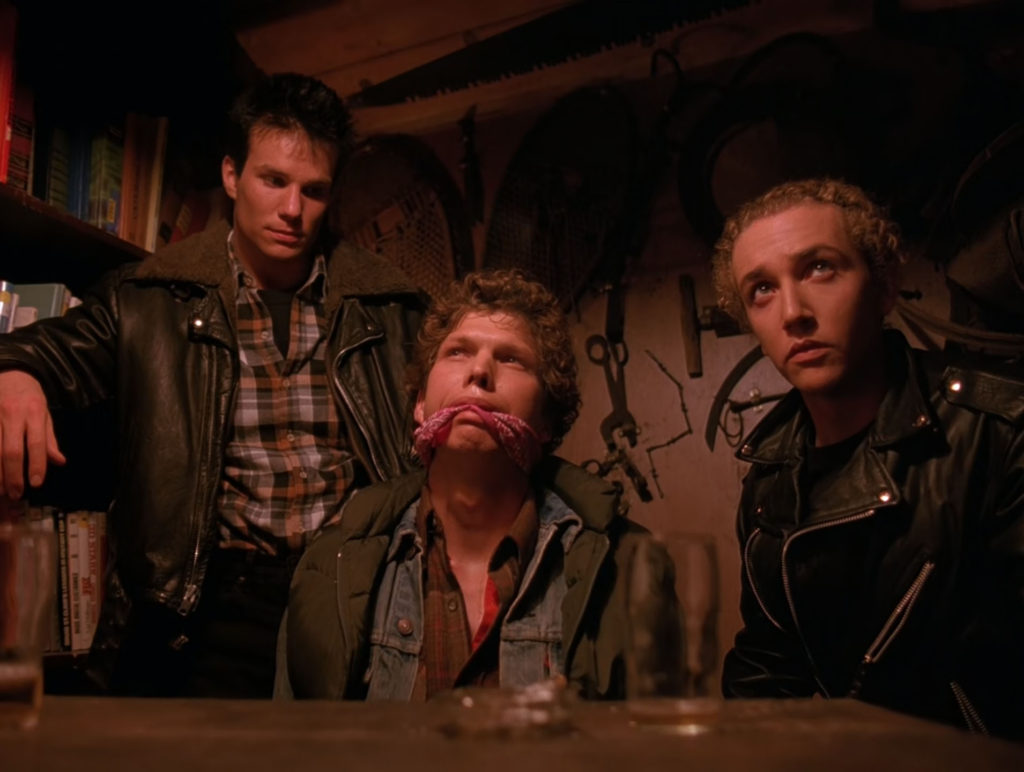
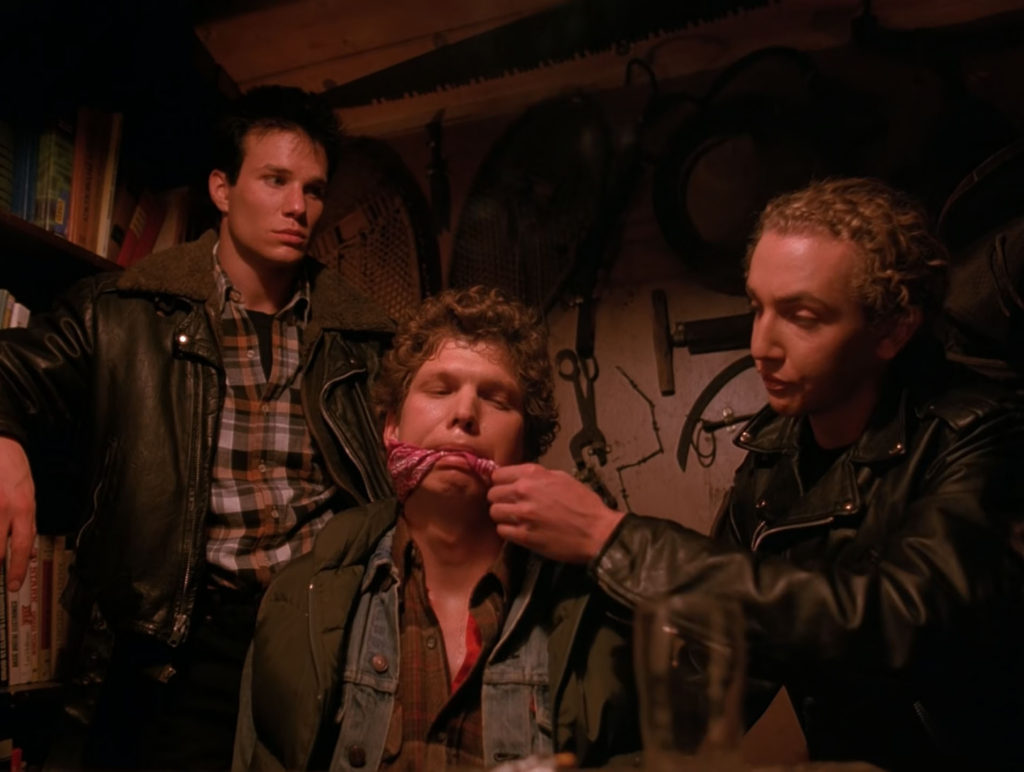
BD: As a viewer, were you much of a fan of the show when it aired on ABC?
BV: It was hard to separate at that point because it was my first project on a national level. I had only done theatre and micro-budget films, so I was pretty overwhelmed. For me the biggest thing is that it has stood the test of time, the longevity of it. I knew even when I read the script they really had a great thing. I don’t know if ABC at that point was locked in for distribution, but I think we were all really passionate and excited.
Looking at it objectively then, even now I think, ‘Wow this is a really great project if nothing else be very proud of the limited work I did on it.” I really liked the quirkiness and the darkness of it. It just felt like ‘Wow. This is really interesting T.V.!’ It just felt like a mini movie, especially with the episodes. It would break conventions and it just felt like, ‘Wow, this is a great project to be involved with.’
It was unfortunate it didn’t take off further and it kind of petered out and again I don’t know the ins and outs of it. If ABC had put more money towards it, I think it really could have had a much larger capacity for a longer run but I was not privy to any of that. They tapped out as much potential that they could with the resources.
MISSING PIECES
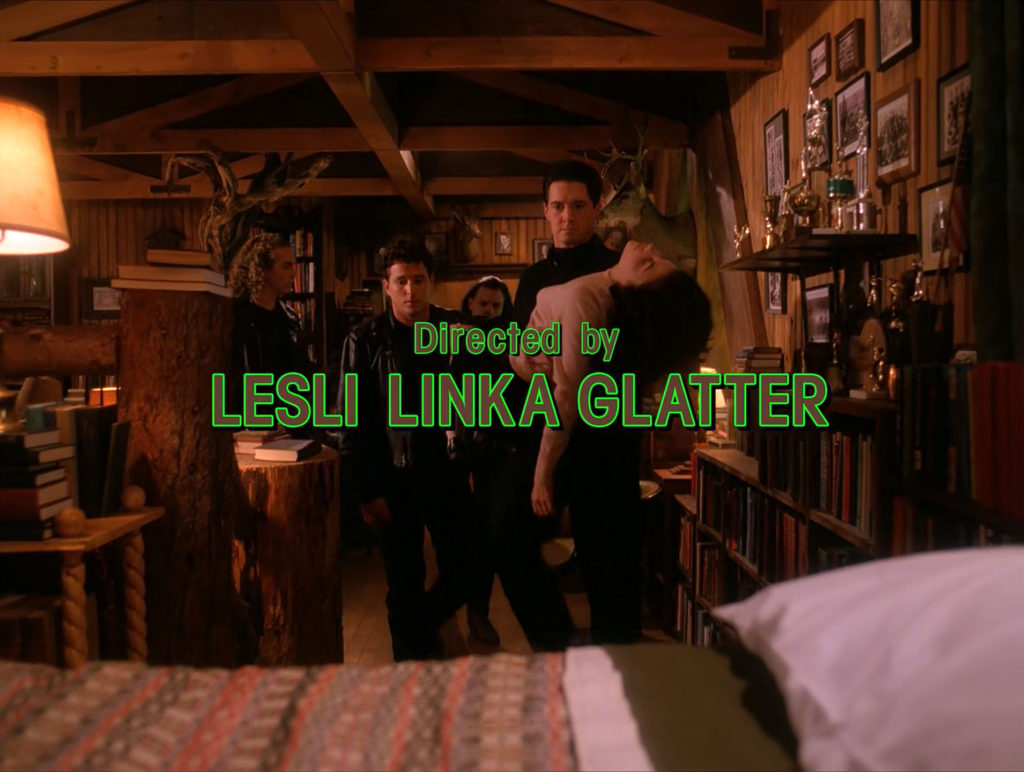
BD: Did you film any scenes that didn’t make it to the air?
BV: Yeah, there was a couple of things in the Bookhouse, it was funny I was trying to think about all that to get an idea of what the context was. A couple of scenes with James that were cut out, but I can’t remember the specifics. I don’t remember off hand the context of it. When I was working in Van Nuys there was definitely some stuff that was definitely cut out.
LIFE BEYOND TWIN PEAKS

BD: Aside from your role on Twin Peaks, have you actively pursued any other on camera roles?
BV: I did some regional commercials for Washington Mutual but have gotten more into directing. When I moved down here and did work on a couple of the episodes I started teaching acting here in Los Angeles, mainly working towards directing. I had been acting from the time I was six years old all the way up to Twin Peaks. I had done the “starving actor” routine for a little while, but never focused on getting in front of the camera or fame or anything like that.
It was more about working creatively to bridge the gap between teaching acting and directing. I kind of segued by teaching a specific technique I had learned called the Meisner technique. I started another theatre company with a couple of other people. That theatre is still going on.
My main goal is writing and directing at this point and it has been for a long time. Some of my friends ask if I will get back into acting and I might, I might give it another shot. It’s a long haul, but the hardest work is getting the job. Once you have the job that’s the fun part, but it’s numbers and numbers of auditions. Seattle was easier because it’s a smaller pond, but here in Los Angeles the airplanes are full of new talent everyday. (laughs)
A huge thanks to Brett Vadset!
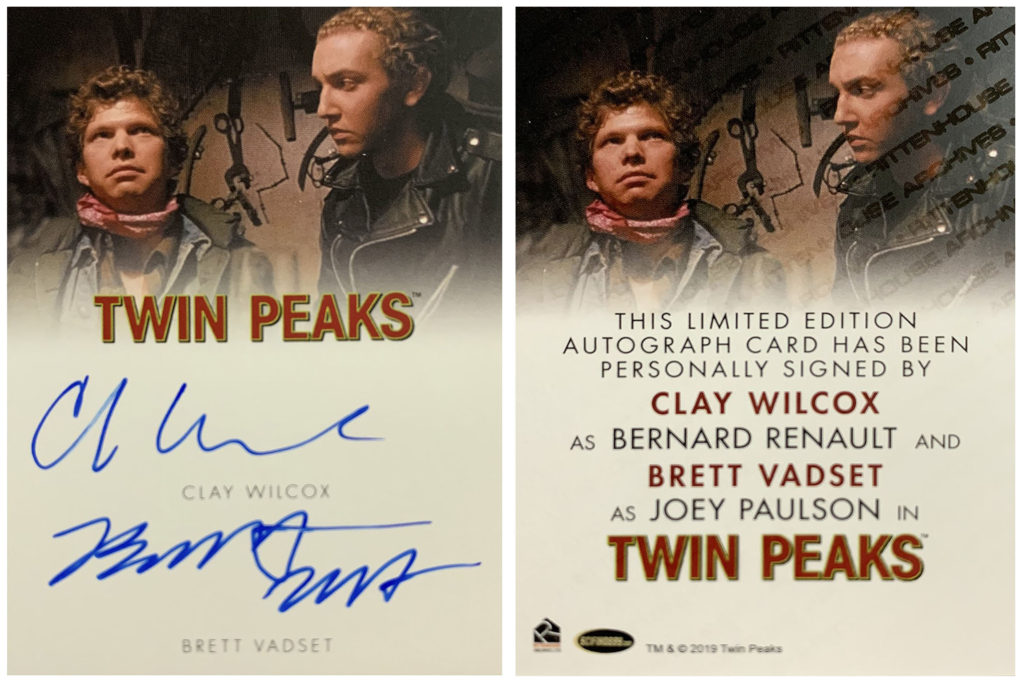
Discover more from TWIN PEAKS BLOG
Subscribe to get the latest posts sent to your email.

